conversation
with you!
You have our ear and we can’t wait to hear about your idea! Share your details here and we will make sure to schedule a coffee date with you soon.
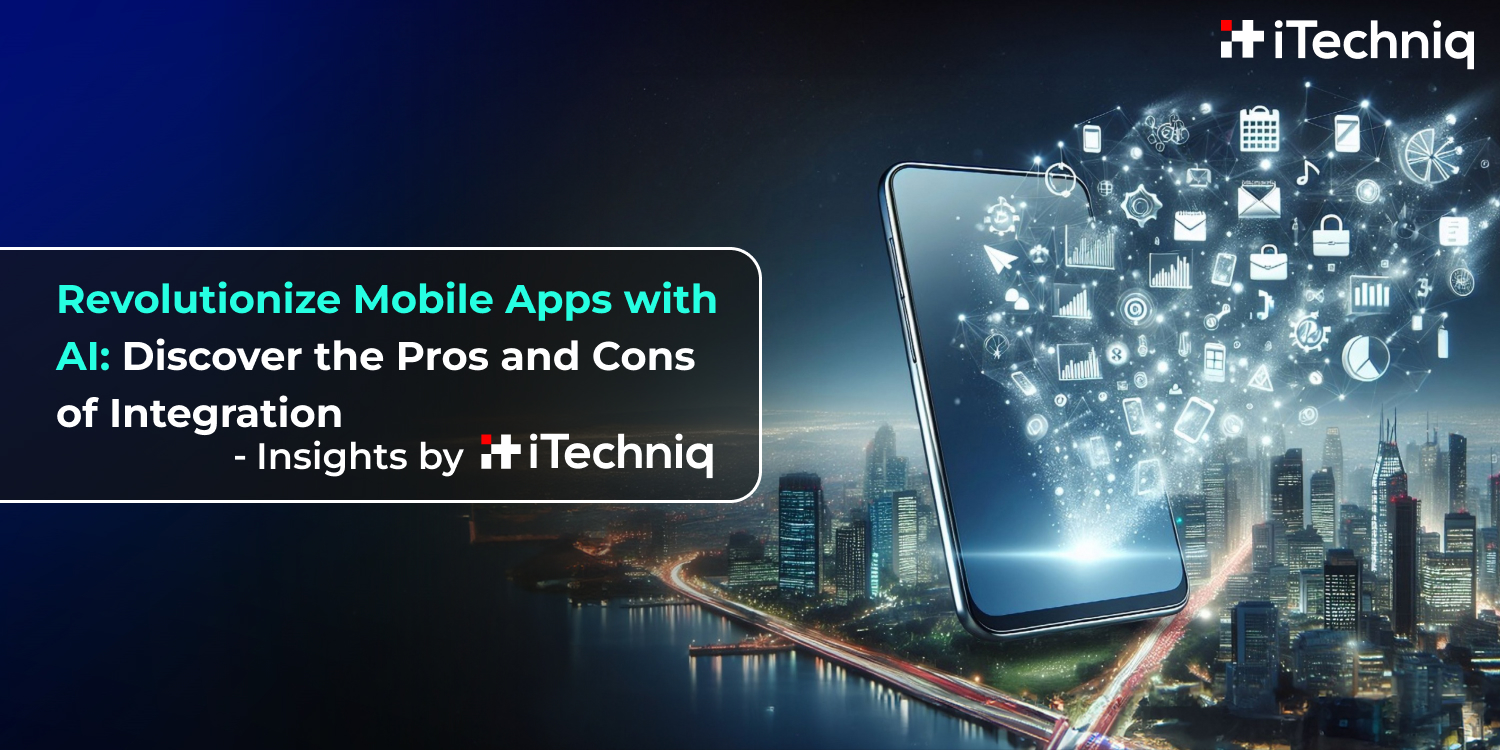
In mobile application development. AI is not any more a buzzword. AI has become the central element in today’s mobile ecosystem. At iTechniq, as an AI Development company, we comprehend that embedding AI in mobile apps is transforming app behavior, engagement with users, and growing business. From improving the user experience to automating mundane tasks, AI is taking the limits of what can be done in mobile applications to a new level. Though the advantages are significant, there are also certain disadvantages that come with AI implementation.
In this article, we will discuss in detail the advantages and disadvantages of AI in mobile app development. We will cover the pros and cons, highlighting the different aspects where AI is affecting the development process.
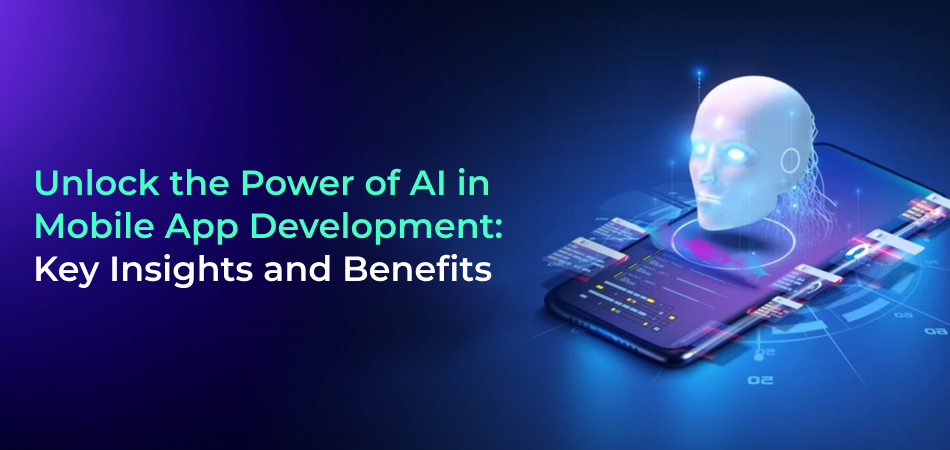
AI in mobile app development is about integrating smart algorithms, machine learning algorithms, and other intelligent technologies to make mobile applications more intelligent, responsive, and adaptive to user behavior. This might encompass anything from an AI chatbot offering customer support to Generative AI Integration Services that assist in generating content dynamically.
Through the power of AI technology, mobile apps can be more personalized, productive, and convenient.
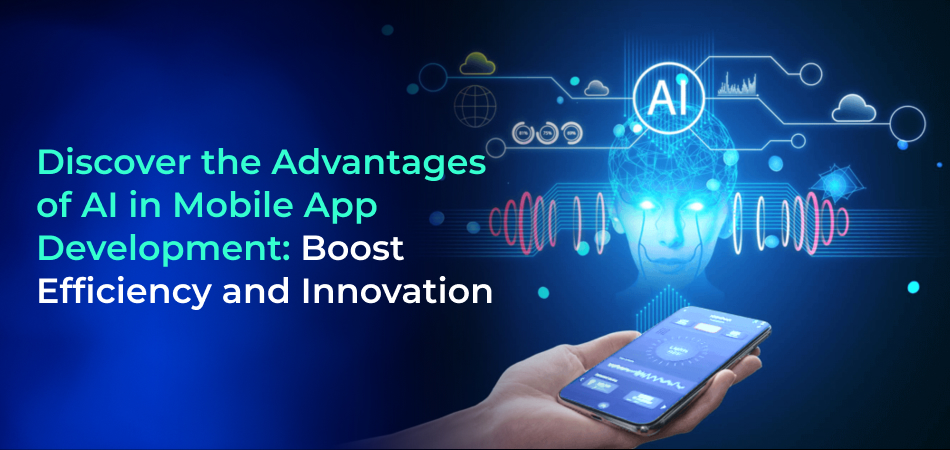
The most eminent and revolutionary advantage of AI in mobile app development is the improvement of the user experience. AI as a Service enables developers to create applications that can provide customized content and replies depending on users’ behavior, interests, and histories.
The bottom line here is that AI makes the users feel more active, which means increased retention rates and satisfaction with the app as a whole.
One of the key advantages of integrating AI into mobile app development is the automation of repetitive tasks. Whether it’s automating customer support through chatbots or streamlining backend processes, AI significantly reduces the need for manual work, which saves time and reduces human error.
Automation by AI not only enhances efficiency but also lowers operational expenses by eliminating the requirement for human intervention in tasks that can be automated.
AI can enhance the overall efficiency of mobile apps, especially in terms of performance optimization. From making apps faster to detecting bugs before they happen, AI optimizes front-end and back-end performance.
Overall, AI enables mobile apps to provide a more seamless experience, which is essential for user retention and maintaining high app store ratings.
Although the upfront investment in mobile apps with AI technology can be high, in the long run, AI can lower developers’ and businesses’ overall costs. AI can automate tasks, enhance app performance, and lower the need for human labor, making it a cost-effective option in the long run.
AI enables organizations to optimize the use of resources and lower the total cost of development and maintenance.
AI contributes significantly to enhanced mobile app security. With the capability of AI to identify patterns and anomalies, mobile apps can provide strong defense against a host of cyber threats, including attempts at hacking, identity theft, and fraud.
With the rising issues regarding data privacy, including AI-powered security features in mobile applications is important to guarantee the trust of the users.
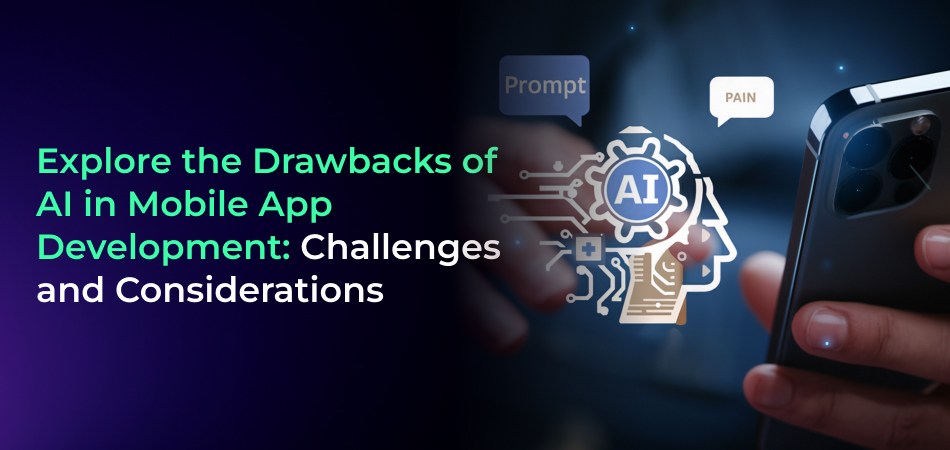
Implementing AI in mobile app development involves an initial high investment. Whether a company hires an AI Consulting company to create strategy or outsources to a Generative AI development company for high-level content development, the price tag can be steep.
For a small business or new company, the high cost can prove to be an entry point barrier.
Implementing AI into a mobile app is no simple task. It involves integrating complex algorithms and models, which requires a deep understanding of AI technologies. Whether you’re working with an AI Agent Development Company or utilizing AI as a Service, the integration process can be challenging.
For most companies, however, the intricacy of integrating AI may present a drawback compared to apparent advantages, particularly if the company is not endowed with enough resources for a seamless setup.
AI works largely because of data—namely masses of good, high-quality, relevant data. Such reliance may become an issue for companies that do not have access to these kinds of datasets.
It is imperative for businesses to manage this data responsibly and ethically to evade legal consequences and retain user confidence.
While most users enjoy the ease of AI-based features, others might still feel apprehensive or uneasy engaging with AI. Be it voice assistants or AI chatbots, there are some users who like the old-school app experience.
Finding a balance between AI capability and providing human options to accommodate a varied set of user preferences is the key.
Although AI may add additional security, it may also create new weaknesses. AI models may be compromised, and their predictions or behavior manipulated by attackers.
Making sure AI systems are tamper-proof and secure is a very important element of safe deployment of AI in mobile applications.
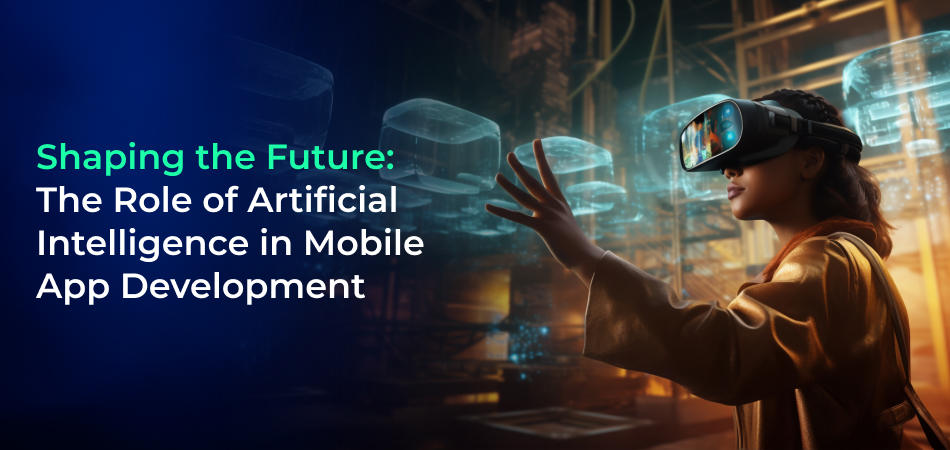
As we continue to progress into the digital era, mobile app development is poised to be transformed by artificial intelligence. Increased adoption of AI technologies is transforming the way apps operate and engage with people, making them more intelligent, quicker, and more effective. Future AI advancements in mobile app development will continue to surprise us with more revolutionary innovations, leading to increased engagement and revolutionizing the way companies interact with their customers.
AI in mobile apps has come a long way, from basic rule-based systems to more sophisticated and autonomous AI Chatbot Development Company services. Today, AI is capable of understanding natural language, making predictions based on large datasets, and even performing tasks that were once unimaginable for mobile apps.
In the coming times, AI will be even further integrated into mobile apps by way of Generative AI Integration Services. This may enable apps not only to anticipate user preferences but also to generate completely new experiences or content by way of analyzing real-time data.
These technologies could make mobile applications much more sophisticated in dealing with intricate user needs and significantly rising the level of user engagement.
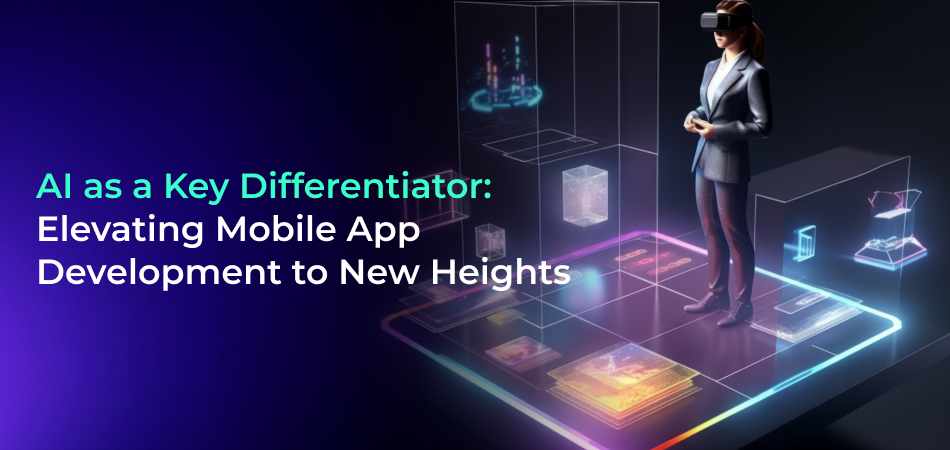
As AI technologies evolve, AI as a Service is becoming a necessary offering for companies that want to make their mobile apps stand out in a competitive market. Through collaboration with an AI Development company, companies can incorporate innovative AI features into their apps without needing to reinvent the wheel. Such features can be used as differentiators that make apps stand out from the competition.
It is an imperative aspect to be competitive in today’s fast-moving mobile app world that such enrichment of the user experience with the use of AI is made possible.
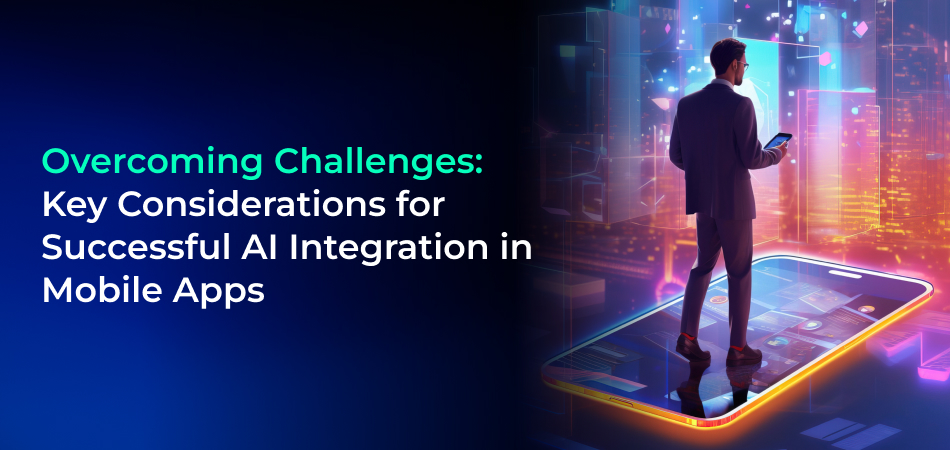
Although the advantages of integrating AI into mobile apps are obvious, companies need to factor in the challenges and considerations that come with it. It is important to meticulously weigh the advantages against the disadvantages before jumping into AI integration to prevent expensive errors.
One of the biggest challenges of AI integration in mobile app development is the ethical concerns of data collection. AI systems are dependent on user data to make precise predictions and offer personalized experiences. This creates privacy, security, and transparency concerns.
An AI Development company needs to ensure that AI systems are built to be ethical, secure, and transparent in their data practices.
Merging AI into a current mobile application or initiating a new mobile app development project with AI consideration can be intricate. Merging AI involves planning and extensive technical know-how. This is where having an expert Generative AI Consulting company on board becomes priceless.
For companies wishing to integrate AI-based solutions within their apps, hiring an AI Agent Development Company or a Generative AI Development Company can facilitate navigating these integration issues and achieve a seamless, efficient process.
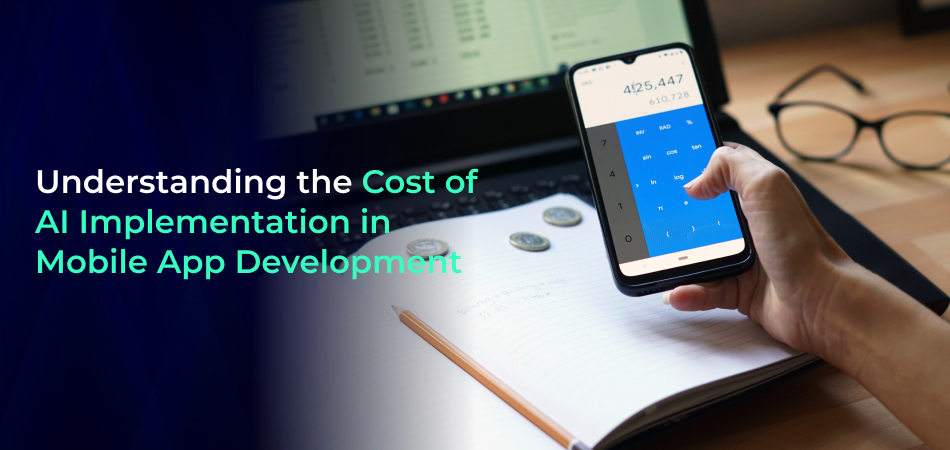
As noted above, the deployment of AI technologies into mobile application development is an expensive affair, particularly when companies decide to have expertise from specialist companies for AI Integrations or AI consulting. Some of the associated costs are:
While the upfront cost is high, companies should consider the integration of AI as an investment that will offer high ROI by way of heightened efficiency, enhanced user experience, and more individualized experiences.
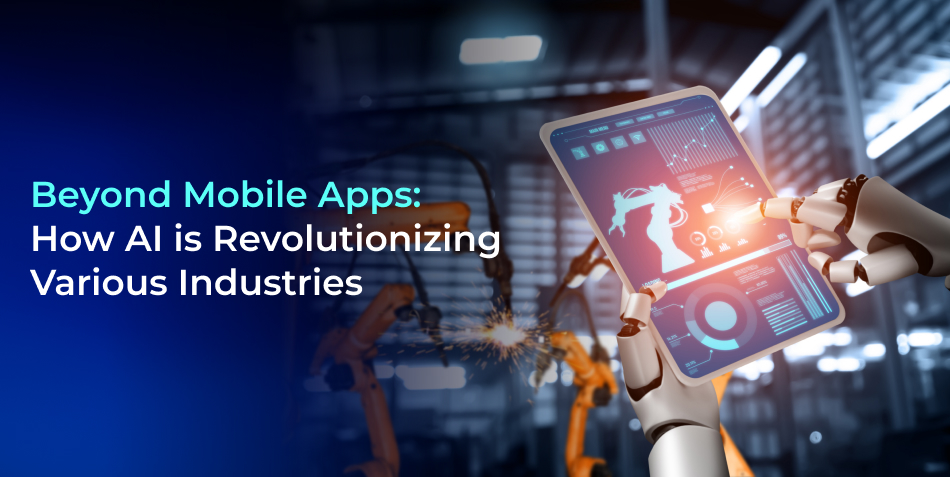
The impact of AI goes beyond mobile app development alone; it’s transforming industries on an overall level. By leveraging AI, companies from different sectors are able to further improve their services, streamline their operations, and enhance the customers’ experience.
AI is transforming healthcare by making it possible for apps to give personalized health advice, streamline administrative work, and even aid in the diagnosis of medical ailments. With the integration of AI, mobile health apps can read patient data and offer predictive suggestions that help make better decisions.
Healthcare apps are only one instance of how AI can enhance user experiences and save lives by providing smarter, data-driven insights.
AI is also revolutionizing the banking and finance sectors by offering intelligent solutions for fraud detection, loan approval, and customer service. Banks are adopting AI to automate processes and improve their services.
As the use of AI technologies increases at financial institutions, customers can also anticipate seeing far smarter and efficient financial applications.
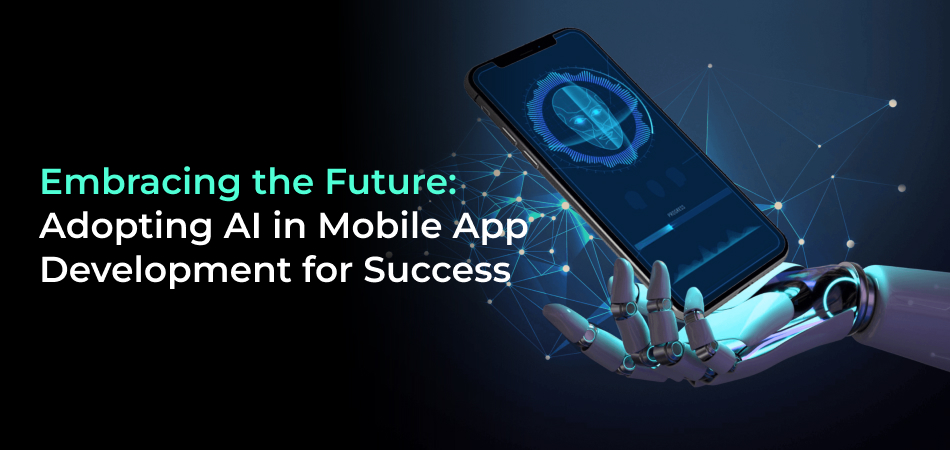
AI is certainly revolutionizing the mobile app development environment, providing great promise for businesses and consumers. With the benefits of AI—increased user experience, automation, increased efficiency, and cost savings—its integration into mobile apps is very appealing. Nevertheless, cost, complexity, and data privacy challenges need to be weighed in careful consideration.
At iTechniq, we realize that the future of mobile application development is about the effortless merge of AI technologies. Through the collaboration with an AI Development company or using AI as a Service, companies can tap into the capabilities of AI to develop intelligent, more effective apps that fulfill the constantly changing needs of the users.
Whether it is adding sophisticated Generative AI Integration Services to improve content generation or partnering with an AI Chatbot Development Company to drive customer interactions, the possibilities for AI in mobile apps are endless. As AI keeps developing, mobile apps will only get smarter, more personalized, and more efficient, leading to increased user engagement and business success.